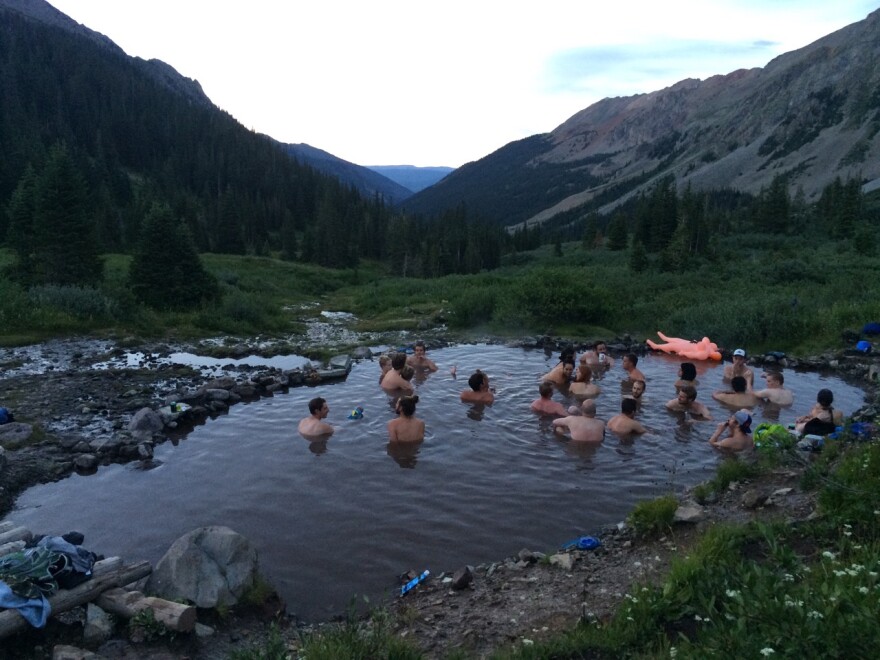The U.S. Forest Service released its assessment of the environmental impacts that will come with a new plan to limit camping in overcrowded wilderness areas.
Forest Service rangers carried over 1,100 pounds of trash out of the Maroon Bells Snowmass Wilderness in 2014 and 2015, and there are growing concerns about damage to fragile ecosystems from overuse of popular areas. District Ranger Karen Shroyer said there is hope for some restoration.
“Some of the critical resource impacts that we’re seeing out there would decrease or at least stabilize under the management plan,” Shroyer said.
That plan sets capacities for the numbers of groups that the landscape can withstand. Right now, the use exceeds that maximum number in five areas: at Conundrum Hot Springs, in three areas along the Four Pass Loop, and at Capitol Lake. Under the new plan, this overuse would trigger a permit system that limits the number of groups who can camp in these popular spots. Shroyer said the agency doesn’t have the capacity to permit all those areas immediately.
“So we would likely phase it in over time and we would be looking at our first zone being Conundrum,” Shroyer said.
That could happen as soon as the summer of 2018. The Forest Service set a maximum of 18 to 20 groups at one time at Conundrum; last summer, the hot springs saw up to about 70 groups on the most popular weekends. Permitting along the Four Pass Loop is likely to follow in years to come.
The Forest Service has not figured out a fee structure or how the permit system would work. That will come if the plan is approved, but there are guiding principles.
“We want to keep it as equitable as possible across user groups, because it’s not just backpackers out there, it’s climbers, it’s hunters,” Shroyer said.
The plan would also allow for permitting to kick in elsewhere in the Maroon Bells Snowmass Wilderness, if other areas see similar overuse.
The public can learn more and give feedback at a meeting next Wednesday, April 5, from 5 to 7 p.m. at the Rocky Mountain Institute in Basalt. The Forest Service will also hold a meeting in Gunnison, since parts of the Maroon Bells Wilderness sit in the Gunnison National Forest. A decision is expected in mid-May.






